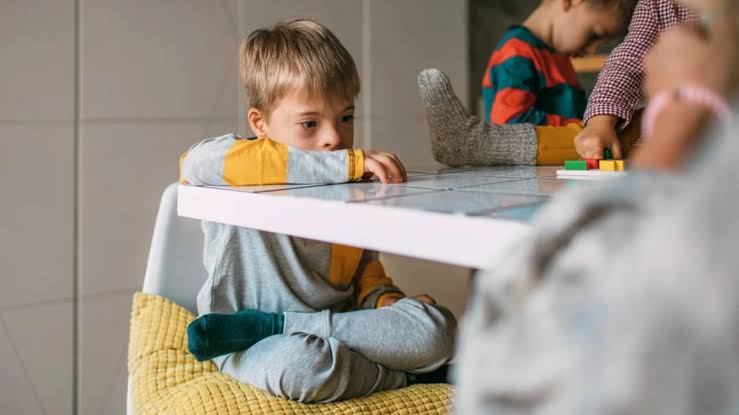Table of Contents
- Introduction
- Immediate Effects of Divorce on Children
- Long-Term Effects and How to Mitigate Them
- How to Talk to Your Children About Divorce
- Effective Co-Parenting Strategies
- When and How to Seek Professional Help
- Building Resilience in Children Post-Divorce
- Utilizing Community Support Resources
Introduction
Divorce can be a traumatic experience not only for the couple but also for their children. Understanding the psychological impact and finding ways to help children navigate through this difficult time is crucial for their emotional well-being. Divorce lawyers in Pasco County Florida can provide vital support for families needing legal assistance. From handling custody arrangements to navigating complex legal matters, expert guidance can significantly ease the burden on the entire family.
Immediate Effects of Divorce on Children
Children may exhibit a range of emotions immediately after a divorce, including sadness, anger, confusion, and anxiety. Parents need to recognize these signs and provide a supportive environment. National Institutes of Health research indicates that early intervention can significantly mitigate adverse outcomes. Open communication and reassurance can help children process their emotions and reduce feelings of uncertainty. Parents should take the time to listen to their children’s concerns and address them with sensitivity and care.
Long-Term Effects and How to Mitigate Them
The long-term outcomes of divorce on children differ, with some typical challenges being academic, behavioral issues, and relationship difficulties. Parents can significantly reduce these impacts by keeping communication channels open and creating a stable environment. Encouraging children to express and validate their feelings helps them develop healthy coping mechanisms. Furthermore, ensuring that children have access to mental health resources and supportive adults can significantly alleviate long-term stressors.
Academic Struggles
Divorce can disrupt a child’s focus and concentration, leading to academic difficulties. To help them, ensure they have a quiet and consistent study environment and remain actively involved in their education. Regular check-ins with teachers can provide insight into the child’s academic performance and any additional support they might need. Parents can also explore tutoring services or academic support programs to help their children stay on track.
Behavioral Issues
Behavioral problems can stem from the emotional turmoil caused by divorce. It’s essential to set clear boundaries and expectations while being compassionate and understanding of their feelings. Establishing consistent routines and providing positive reinforcement can help children feel more secure. Parents should also model healthy ways to cope with stress and emotions, demonstrating that it’s okay to seek help when needed.
Relationship Difficulties
Kids from divorced families might struggle with trust and establishing relationships later in life. Encouraging open communication and modeling healthy relationships can help them build better social skills. Engaging children in activities that promote teamwork and social interaction can also be beneficial. Parents must reassure their children that, despite the changes, they are still loved and supported by both parents.
How to Talk to Your Children About Divorce
Discussing divorce with children is one of the most challenging conversations parents will face. It’s essential to be honest yet considerate of their emotional maturity. Tailor the conversation to their age and ensure they feel heard and understood. Please enable them to inquire and openly convey their emotions. Being transparent about the situation while providing reassurance can help children process the news more healthily. Additionally, revisiting the conversation periodically allows children to voice new concerns as they adjust to the changes.
Effective Co-Parenting Strategies
Successful co-parenting requires cooperation and communication between both parties. Establishing a consistent routine and being respectful towards one another can significantly benefit children. The child’s well-being should always be the primary focus in co-parenting discussions. Healthy co-parenting strategies include:
- Sharing responsibilities equally.
- Avoiding conflict in front of the children.
- Maintaining open lines of communication regarding the child’s needs and activities.
Consistency and Routine
Maintaining a consistent routine helps provide a sense of stability for children. Agreements on visitation, pick-up/drop-off times, and holiday schedules should be followed as much as possible. Sticking to similar rules and expectations in both households is also beneficial, reducing confusion and helping children feel a sense of predictability in their daily lives.
Respectful Communication
Parents should communicate respectfully and keep discussions child-focused. Avoid using children as messengers or speaking negatively about the other parent in their presence. Instead, use direct communication methods such as emails, phone calls, or co-parenting apps to manage shared schedules and responsibilities. Maintaining a civil relationship with your ex-spouse models healthy interpersonal skills for your children.
When and How to Seek Professional Help
Despite best efforts, children may sometimes need professional help to cope with the divorce. Therapists specializing in childhood trauma or family counseling can offer invaluable support. Knowing when to seek this help is crucial for the child’s recovery process. If you notice that a child is struggling significantly with their emotions and showing signs of depression or anxiety, it’s essential to seek professional guidance. Therapists can provide a safe space for children to express their feelings and provide tools to manage their emotions effectively.
Signs to Watch For
If a child displays persistent sadness, withdrawal, or academic and behavioral decline, these may be signs that professional intervention is needed. Changes in diet and sleep patterns may also indicate problems. Monitoring these behaviors allows parents to step in and seek help early, preventing long-term psychological impacts. Schools often have counselors who can provide initial assessments and refer families to suitable mental health professionals.
Choosing the Right Professional
Consult with pediatricians and school counselors to get recommendations for therapists who specialize in helping children through divorce. Ensure the professional chosen has experience and a good rapport with children. Look for licensed mental health providers specializing in family dynamics and childhood development. It’s also beneficial to involve children in the selection process, ensuring they feel comfortable and safe with the therapist.
Building Resilience in Children Post-Divorce
Building resilience in children can help them adapt to the changes brought about by divorce. Encouraging open communication, fostering healthy relationships, and maintaining a positive outlook can empower children to overcome challenges. Supporting their interests and activities and helping them set realistic goals can bolster their self-esteem and sense of agency. Giving children the chance to be independent while supporting them helps them develop confidence in their ability to overcome challenges in life.
Utilizing Community Support Resources
Various community resources are available to help children and parents navigate through divorce. Support groups, counseling services, and educational workshops can provide additional support and guidance. Local community centers and schools often offer resources for families going through divorce. Joining a support group can help children realize they are not alone in their experiences, fostering a sense of belonging and community. Parents can also find solace and advice from peer support networks, which can be incredibly beneficial during this challenging period.

